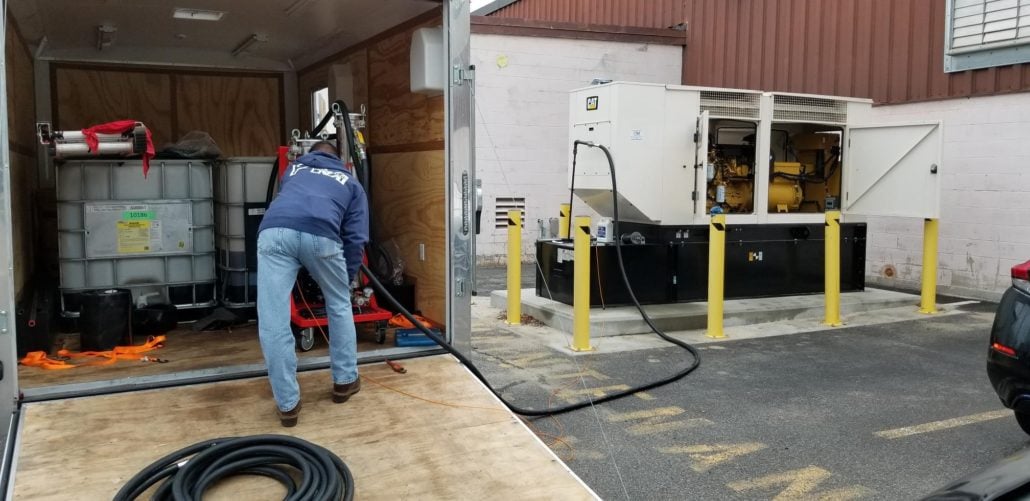Adding ULSD to a Tank with Existing Fuel
Each time new diesel fuel is added to a tank with existing fuel, the existing fuel “churns” which increases the risk of accelerating the oxidation process. Before adding fuel to a tank with existing fuel, check for water contamination in the existing fuel. If there is no water contamination, add biocide as a preventative measure, and then add the new fuel. When a high level of water is detected, best practice is to remove the old fuel and replace with new.
Maintenance and Treatments
“The quality of the diesel fuel in extended storage can be unpredictable due to the accumulation of contaminates resulting from oxidation.” EGSA: On-Site Power Generation, 5th Edition. At FM Generator, we check the condition of diesel fuel at every maintenance visit. Checking for water contamination is a must, as water collects due to normal condensation on the tank walls. If fuel tank levels are maintained near full, less condensation occurs as the tank’s free surface area is smaller. If the tank is kept water-free and treated with a biocide, the risk of microbiological contamination is minimal.
We highly recommend the use of biocides and stabilizers for diesel fuel as these prevent degradation of the fuel when stored for long periods of time. Stabilizers inhibit oxidation of the fuel. When diesel fuel oxidizes, it creates a sticky substance that can clog fuel filters and diesel engine injectors. Biocides and stabilizers are not effective, however, when fuel is already contaminated. These treatments are preventative measures and cannot be used as corrective measures.
If we discover contaminated fuel, we will recommend a fuel polishing service. Fuel polishing removes oxidation and sludge from the existing fuel in a fuel tank. The ULSD fuel commonly used today can hold twice as much water in suspension as Low Sulfur Diesel which requires better maintenance, especially for long term stored diesel fuel.
We also recommend regular fuel sample testing. This is done by taking a sample of the fuel and submitting to a laboratory for detailed testing. Consistent testing of fuel (and all generator fluids) can be extremely helpful in identifying issues before they cause catastrophic failure of the equipment. Regular testing can identify trends which can guide in proactive repairs.
